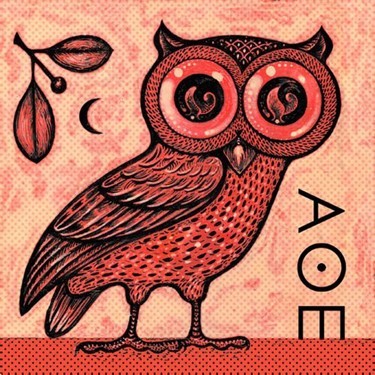“Does knowledge have intrinsic value or is its value respective to how applicable it is?”
Thank you, Arjun Sambhi, for another corker of a question.
Aristotle is famous for saying that we all naturally desire knowledge. But do we always want to know the truth? (Cue Mario Winans’ “I don’t Wanna Know”.)
Imagine you had two options. You could know the truth or be ignorant (not know) the truth. Which option would you choose? If you chose knowledge rather than ignorance, ask yourself why you prefer knowledge.
Perhaps you want knowledge because you heard knowledge is power. In that case, you prefer knowledge because you seek power. Maybe you want knowledge so you can answer people’s questions. Maybe you want fame! You could be praised or called a nerd for knowing everything; nonetheless, you’d be popular. You could also get rich from your inventions and ideas!
Power, fame, and money seem valuable, and having knowledge are means of obtaining them, so we desire knowledge. Power, fame, and money are extrinsic reasons to desire knowledge; they could explain what makes knowledge extrinsically valuable.
Wait, is power valuable? If you don’t think that power is valuable, then you would not think that power is what makes knowledge valuable. We can argue about what makes knowledge extrinsically valuable simply because we can argue about what is valuable.
But if knowledge is intrinsically valuable, then knowledge is valuable and its value is not derived from something else. If knowledge has intrinsic value, then you may prefer knowledge only for its own sake.
Consider these questions. Exactly how many grains of sand are there on all the beaches on earth? Did Julius Caesar have a mole on his back? If we could know the answers to these questions, what purpose would the knowledge serve? I say, none. This is useless information. Do you still want to know the answers, even if knowing does nothing for you? If you are someone who would prefer knowing how many grains of sand there are on earth even though there is no use for that information, then you probably believe knowledge has intrinsic value.
Many philosophers believe that knowledge has intrinsic value. For them, there is no questioning what makes knowledge valuable because knowledge is valuable independently of all other things. Yet there is disagreement about what, exactly, knowledge itself is. For people who disagree about the nature of knowledge, there might be disagreement about the intrinsic value of knowledge.
To me, knowledge has intrinsic value. I think knowledge is essentially an ability; for example, to do things correctly or answer questions well. You might never have to tie a knot to save your life, but knowing how to tie a good knot means living if you ever were in such a situation. I prefer being able than unable; I would rather know than be ignorant.
The way I see it, knowledge has both intrinsic and extrinsic value. We value knowledge independently of our other values, but part of what makes knowledge valuable are other valuable things, such as that awesome feeling when we win trivia or correctly answer a tough question.
What do you think? Does knowledge have an intrinsic value? Let us know in the comments.
If you have a question for the Armchair Philosophers, don’t hesitate to get in touch. You can find us on Twitter (@armchair_o) or fill in this form.
Be sure to check out our podcast!
If you like what we do, you can support us by buying us a coffee!
Image: In Greek mythology, a little owl traditionally represents or accompanies Athena, the goddess of wisdom. Because of such association, the bird has been used as a symbol of knowledge throughout the Western world. (credit)
I teach philosophy at St. Louis Community College, Meramec. I have an associate's, bachelor's, master's, and doctoral degree in philosophy. I love thinking about knowledge (the field called "epistemology") and ethics (especially taking interest in convincing people to do the right thing for the right reason). My heroes include Socrates and Kant.

